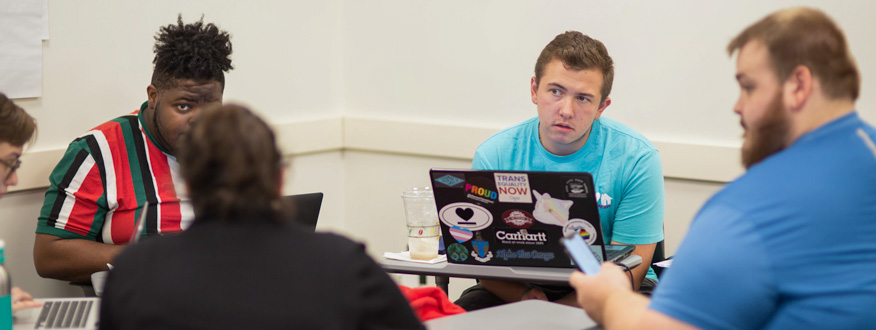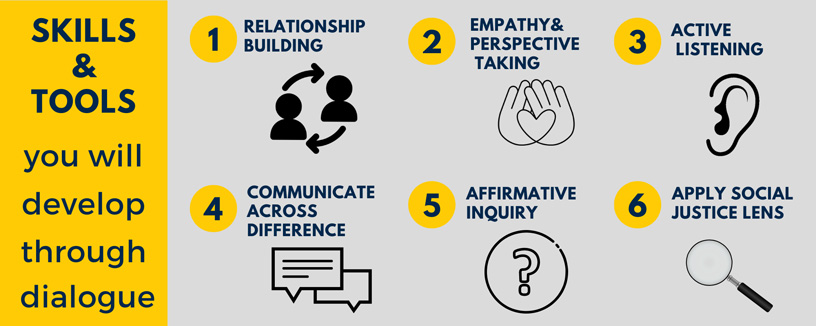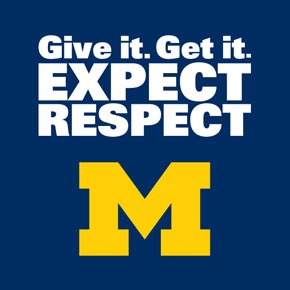
Social Work & Social Justice Dialogues
The Social Work & Social Justice Dialogue Program is a co-curricular program providing students with the opportunity to engage with peers and learn how to dialogue. Our program is modeled from the InterGroup Relations Program (IGR). Learn more about IGR here.
What is Dialogue?
Dialogue offers a set of skills and tools for how to engage with others around controversial topics. The goal of dialogue is to better understand yourself and others through an informed exchange of ideas and beliefs based on mutual respect and tolerance.
Tiana Jones, MSW ‘19
Learn more about the Dialogue Group Process
Explore the stages of the dialogue group process
Program participants will:
- Reflect on their own identities and positionalities
- Explore their own views, experiences and values
- Develop insight into how others experience and navigate the world
- Develop mutual understanding and build community
- Gain tools for navigating difference on and off campus
What are the Benefits of Dialogue?
Bex Montes, MSW ‘19
What Skills will you Develop Through Dialogue?

- Relationship Building- Connect with peers outside of the context of a formal classroom environment. Develop authenticity and vulnerability with others.
- Empathy & Perspective Taking- During dialogue, you will hear about other participants’ experiences, consider others’ perspectives, and hold space for the existence of multiple realities.
- Active Listening- We seek to engage without judgment in order to understand the meaning the speaker is communicating.
- Communicating Across Differences- Rather than trying to persuade or convince, we communicate to explore differences, to surface underlying values and beliefs, and to understand each other.
- Affirming Inquiry- Affirmative inquiry is a tool for building connection through listening, affirming, responding and inviting others to share. This tool encourages openness and reciprocity in vulnerability and sharing.
- Apply Social Justice Lens- Participants critically reflect on their own identities, privilege and oppression, dominant narratives, and consider their role in engaging in anti-oppression work.
